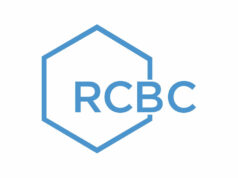Pandemic-resilient industries
When the Philippines’ second-quarter economic performance data was released last week, Acting Socioeconomic Planning Secretary Karl Kendrick Chua remarked: “Our country is facing the biggest crisis in nearly eight decades.” His reference point was the Second World War in the 1940s, when the economy plunged 70% compared to pre-war output, according to a study done by former Economic Planning Minister Gerardo Sicat.
There is no available data regarding the impact of the Spanish flu pandemic on our erstwhile US colonial economy from 1918 to 1920, but the current COVID-19 pandemic has definitely wreaked havoc on an overwhelming majority of our industries.
Based on the Philippine Statistics Authority’s latest report, only the following sectors have managed to grow during the April-June 2020 period: pharmaceutical and healthcare; groceries and essential retail; food manufacturing and preparation; logistics and delivery networks; banks and financial services; information and communication technology; electricity, gas, and water.
The latter includes liquefied petroleum gas (LPG), which is the only downstream oil industry that has not been affected negatively by the series of lockdowns in various regions. LPG is used as cooking fuel by millions of Filipinos, who had to cook their own meals and mostly stayed home during the Luzon-wide enhanced community quarantine (ECQ) from March 16 to May 15.
Homegrown firm South Pacific, Inc. (SPI)’s robust performance in the first half of 2020 attests to the fact that LPG is considered a basic necessity and remains a staple in Filipino kitchens. Its gross sales went up 27% to P7.8 billion from P6.1 billion in the first half of 2019, and its net profit rose 13% to P600 million during the same period.
SPI President Iñigo Golingay, Jr. disclosed that volume growth surged 34% year-on-year to 143,000 metric tons. “Our supply has remained stable despite the pandemic. Distribution to our customers encountered some hurdles at the start of the ECQ, but when quarantine was eased and the truck ban was lifted, LPG transport ran smoothly,” he said. Assuring the reliability of product supply despite changing levels of quarantine boosted consumer confidence and contributed to the company’s sales growth.
Being part of the energy sector, SPI made sure it complied with operational requirements mandated by the Inter-Agency Task Force on Emerging Infectious Diseases (IATF). Operations were not hampered by the IATF’s strict protocols because the firm provided service vehicles to transport its employees from their homes to workplaces in Batangas, Cebu, and Pampanga, where the company’s terminals and storage plants are located.
Due to SPI’s resilience in the first half, Mr. Golingay expressed optimism that the company will achieve steady growth levels. Even before the global pandemic, it had already anticipated the challenge of managing transport issues and invested in its own logistics team when it started operation in 2015. Directly controlling the company’s fleet of bulk LPG trucks and large facilities has given SPI an edge in terms of supply and distribution, thus clinching the third biggest market share barely five years after joining the industry.
In the food kiosk business, Fruitas Holdings, Inc. (FHI) declared P21 million in cash dividends, its first as a listed firm in the Philippine Stock Exchange. FHI President and Chief Executive Officer Lester Yu announced: “We are pleased that our financial strength allows us to distribute dividends amidst the challenges posed by COVID-19. Even as we continue to pursue our growth plans and evaluate attractive market opportunities, we wanted to initiate a track record of returning earnings to our public shareholders.”
FHI reported a core net income growth of 34% in 2019 and a whopping 41% rise in profits for the first quarter of 2020 even as the public health crisis was already starting to devastate the economy. Its cash dividend declaration could indicate positive numbers for the second quarter with a sustained performance in spite of lockdown restrictions.
These two companies have experienced growth in a time of severe crisis and serve as inspiration to other sectors of Philippine business — a sign of better things to come for our nation.
J. Albert Gamboa is the CFO of Asian Center for Legal Excellence and Chairman of FINEX Publications.



